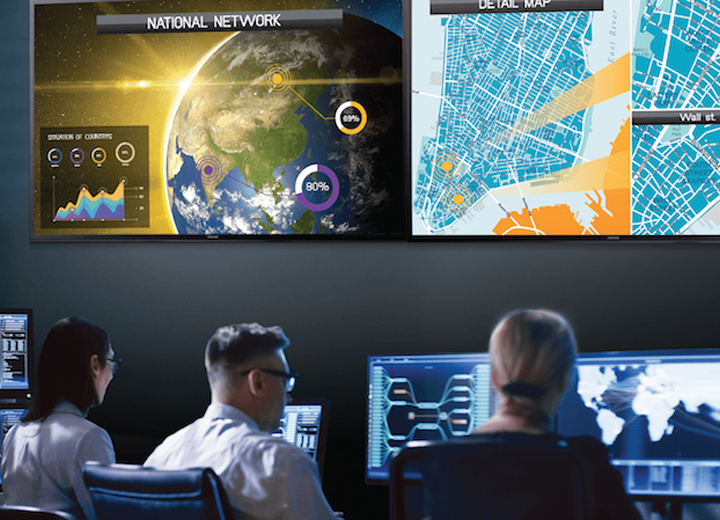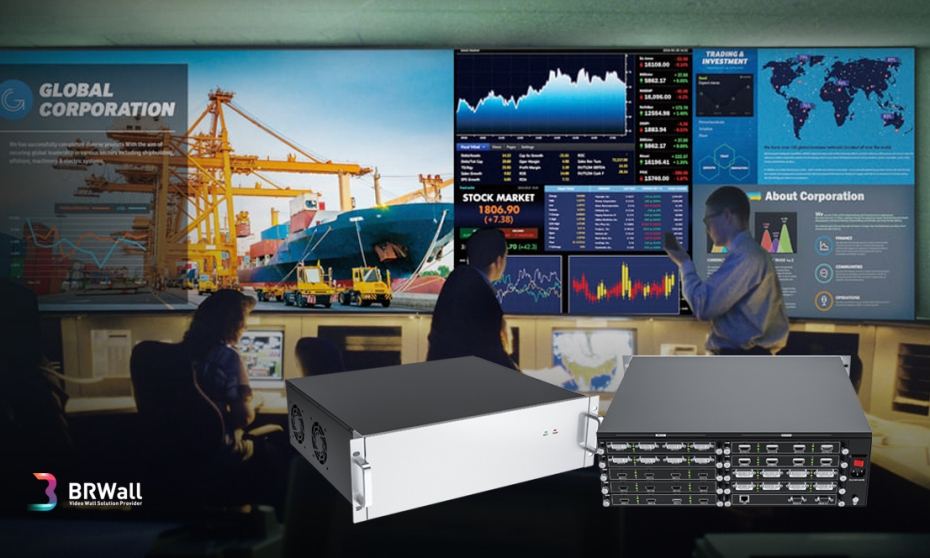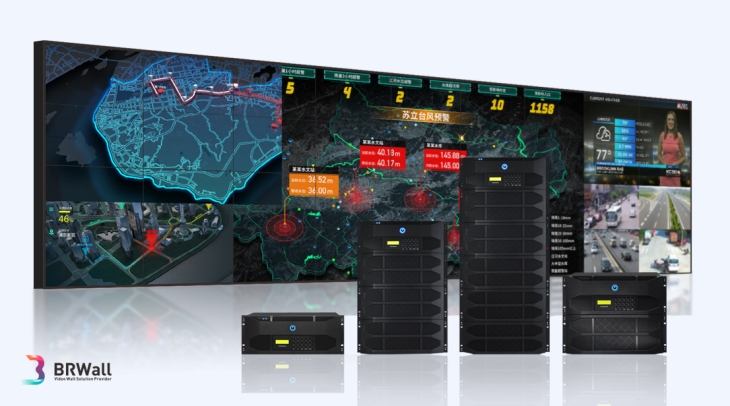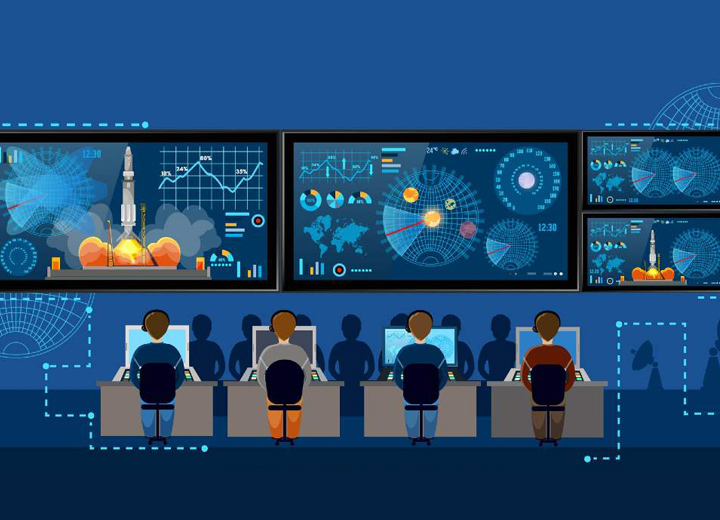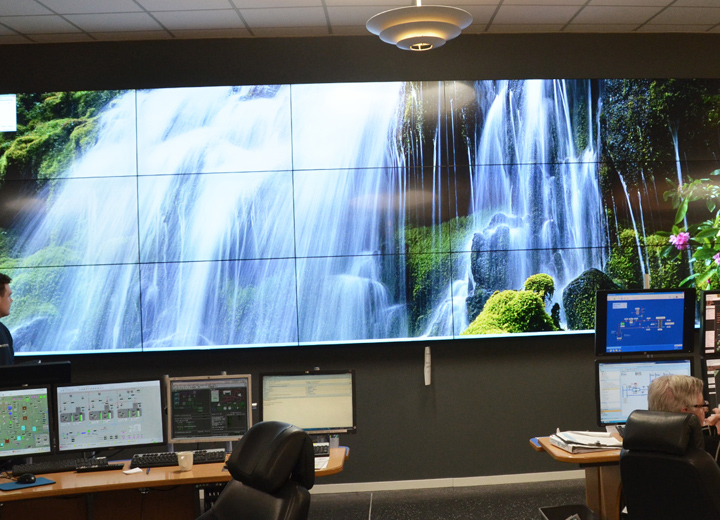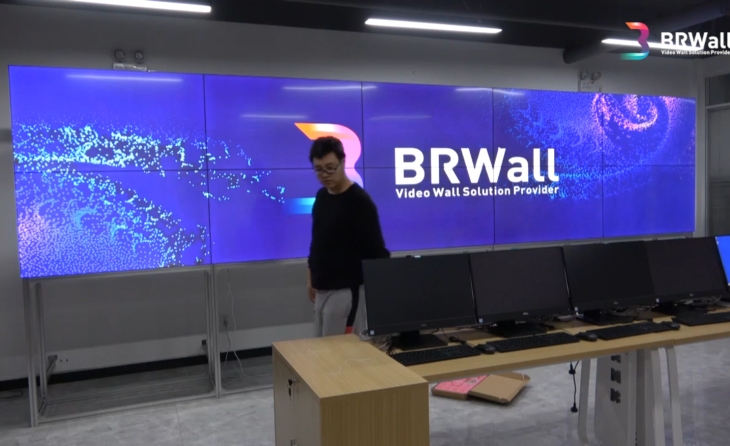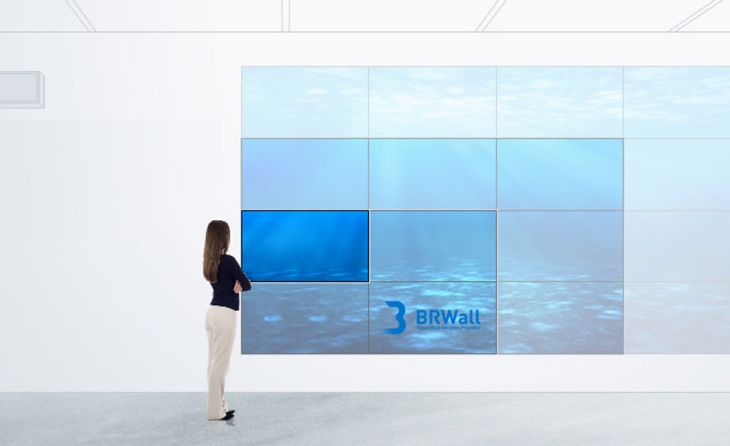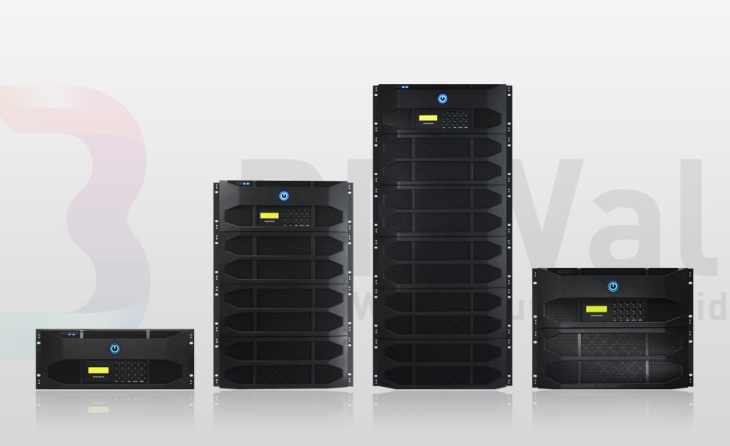1. Hardware-Based Video wall processors
A hardware-based video wall processor is usually built on an array of video processing chipsets and lacks an OS.
A hardware-based video wall processor is advantageous as it offers high performance and is highly reliable. It is highly reliable as it can support up to 144 screens.
However, the hardware-based video wall processor is expensive and is not flexible in content management, which is one of its downsides.
The video controller has a highly configured chassis with multiple input and output interfaces, including HDMI, VGI, SDI, and VGA.
It also supports high definitions and 4k Ultra high definition resolution, which is ideal for a video controller.
The hardware video controller can also support video processing speeds of up to 50Gbps with very low latency.
